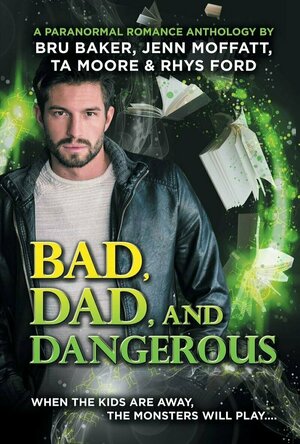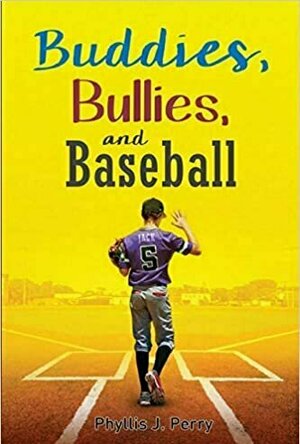
Hornet, The Gay Social Network
Communication, Photo & Video and Social Networking
App
Hornet makes it fun and easy for gay, bi, and curious guys to connect with each other. Find great...

Showa Candy Shop 2
Games
App
Back by popular demand! The sequel to Showa Candy Shop! Experience nostalgia with a Japanese twist...

Bad, Dad, And Dangerous Anthology
Rhys Ford, TA Moore, Bru Baker and Jenn Moffatt
Book
Bad, Dad, and Dangerous Anthology When the kids are away, the monsters will play. School’s out...
Paranormal Romance MM MF
Heather Cranmer (2721 KP) rated The Emerald Ring (Cleopatra's Legacy, #1) in Books
Jun 7, 2018
I was super excited to be asked if I wanted to be part of the Emerald Ring Blog Tour by the author, Dorine White. After reading the synopsis of this book, I definitely wanted to give it a read. All in all, I definitely enjoyed it!
Sara is a 12 year old girl, who, after finding an emerald ring at her grandmother's house, realizes she can shape-shift into a cat. She's also started having some really strange dreams as well. When a bunch of burglaries start happening close to her neighborhood, she takes it upon herself to put everything together to figure out who is behind them all. Will Sara's find out what the thief wants and why she's having strange dreams? Or will the magic of the emerald ring be too much?
I do like the title of this book. It's very straight-forward which I believe is a good thing as it's a middle grade fantasy novel. You know exactly what this book is going to be about. I think the title would definitely appeal to middle schoolers as well as adults.
The cover definitely suits the book. I like how there's a picture of the ring on the cover. I also like the sarcophagus on the cover. It's a nice touch! I believe the cover will appeal to children in middle school very much.
The world building in this novel is believable especially for a child in junior high. The dreaming sequences were very well written as were the scenes at Sara's school and house. I had no problem using my imagination to set up the world in which this novel took place.
The pacing in this novel is great!! Even as an adult, I thought it flowed rather nicely. I devoured this book in no time at all. Each chapter ran smoothly into the next. It was terrific!
The characters, for the most part, are well written. Sara reminded me of a 12 year old girl with her thought process and the way she acted. I loved her curiosity about everything. Heidi, Sara's best friend, was my favorite character. She always had Sara's back and was a big help when it came to Sara's adventure. I wish she was featured a bit more in the story though. I do think she was a bit too trusting of everything Sara told her though. I don't think most 12 year olds would be that gullible. Kainu was a believable character but I kept forgetting that he was supposed to be African. He spoke very good English for someone from Africa. It is explained how he learned how to speak English, but I don't know. I still felt as if he spoke English a little too well. Plus, Kainu's story wasn't that believable being as he's only 12 years old. I won't go into more detail because I don't want to give any spoilers away. Perhaps middle schoolers won't pick up on any of the character flaws.
The dialogue was fun to read. I enjoyed Sara's internal dialogue the best. I loved reading about how she felt and what she thought. There were a few words that I think middle school children wouldn't know the meaning of. Even I struggled with a few of the words, but there aren't many so it doesn't take away from the book.
Overall, The Emerald Ring by Dorine White is a cute, fun story which will be enjoyed by all middle school children. In fact, I think it will be enjoyed by most adults as well. The plot is interesting, and the characters are fun. At the very least, it may get children interested in Ancient Egyptian history.
I'd recommend this book to everyone age 11+ because it's such a fun and cute story.
The Emerald Ring (Cleopatra's Legacy #1) by Dorine White gets a 4.5 out of 5.
(I received a copy of this book from Netgalley in exchange for a fair and honest review).
Heather Cranmer (2721 KP) rated Yazzy's Amazing Yarn in Books
Aug 24, 2019 (Updated Aug 24, 2019)
Yazzy is a young girl who loves knitting just like her mom. When Yazzy and her mom walk by a park, Yazzy's mom reminisces about how the park was a lot better back when she was a kid. That night, Yazzy can't sleep. She's thinking about what her mom told her about the park. With the help of her friends, Yazzy decides to yarn bomb the park to bring back some of the cheer her mom experienced as a little girl.
I found the plot for Yazzy's Amazing Yarn to be interesting. My 4 year old son lost interest after a few pages though, but I don't think he's quite the demographic this book would appeal to. To me, I believe this book would appeal most to little girls aged 6 to 10 years of age. I also think the dialogue would be more understandable in this age group. Anyway, I enjoyed learning about what Yazzy and her friends would come up with to make the park more colorful and lively. When the girls leave the house for the park before it opens, I did wonder if they let Yazzy's mom know they were leaving the house. I guess that's just the mom in me though. I would have liked something written in the book that said a parent was notified of them leaving. Anyway, everything else was great, and yarn bombing was a fantastic idea to make a dreary old park come to life. I loved how the author added some history about yarn bombing at the end of the book. I had no idea yarn bombing was a thing until I read Yazzy's Amazing Yarn. From my take on it, it's when someone knits something for an item in their neighborhood such as for stop signs, traffic lights, parks, sidewalks, trees, etc.
The character of Yazzy was likable, and I think young girls can and will relate to her quite easily. She comes across as someone with a kind heart who likes to make others happy. Yazzy seems selfless and like a happy go lucky girl. I loved the diversity of all the characters I came across in Yazzy's Amazing Yarn, but it would have been even better if one of Yazzy's friends had been a boy to show that boy's like knitting as well and that it's not only for females. I was a bit disappointed that only girls were shown knitting. However, that didn't stop me from enjoying this great book.
The illustrations for Yazzy's Amazing Yarn were done superbly. Emily Calimlim, the illustrator, is such a talented artist, and it definitely showed throughout this book. I loved the different vibrant colors used throughout the pictures! My favorite scenes were the ones that took place in the park when it came to illustrations. I felt this was when the colors and illustrations jumped up at me from the page the most.
All in all, Yazzy's Amazing Yarn is such a feel good funtastic (not a typo) story that will warm everyone's heart. The story itself is beautifully written, and the illustrations are gorgeous! I would recommend Yazzy's Amazing Yarn by Cathey Graham Nickell to all ages due to the feel good factor although I do believe little girls ages 6 - 10 years would find it the most appealing. Yazzy's Amazing Yarn gets a 4 out of 5 stars from me!
--
(A special thank you to Lone Star Book Blog Tours for providing me with an eBook of Yazzy's Amazing Yarn by Cathey Graham Nickell in exchange for an honest and unbiased review.)

Buddies, Bullies, and Baseball
Book
When Bullies Act Out, It’s Time for Buddies and Baseball A cloud hangs over Jack as he begins...

Athla Velocity: Hands-Free Speed Radar (Ultimate Version)
Sports and Health & Fitness
App
Considering a PocketRadar or a Stalker Doppler? See our "battlefield" comparison of five speed...

Toca Life: School
Education and Entertainment
App
Grab your backpack— it’s time for Toca Life: School! Teach a class, pick a locker and have a...

Siren's Call (Dark Tides #1)
Book
Between desire and love there are some things that can’t stay buried, even in the deep of the...


